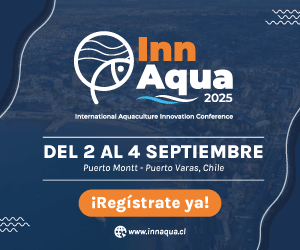The collective mark will help consumers select fishery and seafood products that help protect the nation’s marine resources and improve the livelihoods of workers in its fisheries sector.
Consumers worldwide can now easily identify sustainably caught and processed fish and seafood from Costa Rica, thanks to a new label launched on 11 November at an event held online and in the Pacific port town of Puntarenas.
The Pura Vida Costa Rican Seafood & Aquaculture collective mark, which means “pure life” in English, is the result of a project implemented since 2018 by UNCTAD and the UN’s Division for Ocean Affairs and the Law of the Sea (DOALOS).
The mark is promoted in the country by the Ministry of Foreign Trade, the Costa Rican Institute of Fisheries and Aquaculture (INCOPESCA) and the National Chamber of Fishery Products Companies (CANEPP).
“This initiative, which is closely linked to the United Nations Sustainable Development Goals, represents a valuable tool that can contribute to reducing poverty, improving food security, promoting gender equality, and improving the sustainable production and consumption of fishery and aquaculture products,” said Costa Rica’s foreign trade minister, Andrés Valenciano Yamuni.
INCOPESCA’s executive director, Daniel Carrasco, added: “Today, with great enthusiasm, national fishery and aquaculture products that comply with a series of conditions that promote social, economic and environmental responsibility, from their production to their delivery to the consumer, will be identified under a single mark.”
Great potential, big responsibility
The global export of fish, shellfish, molluscs and other species is estimated at about $164 billion per year, and global food fish consumption rose by 122% from 1990 to 2018, according to the latest data from the UN Food and Agriculture Organization (FAO).
With coastlines on both the Pacific Ocean and the Caribbean Sea, and a marine economic exclusive zone 10 times larger than its land area, the Central American nation abounds in marine resources that could boost economic growth and improve livelihoods.
“As a country with great potential for marine exploitation, we have a great responsibility to support the sustainable development of our fishing and aquaculture industry,” said CANEPP’s executive director, Ana Victoria Paniagua Prado.
Despite the country’s marine resources and surging global demand, fisheries and aquaculture production, estimated at $113 million in 2018, represent a small and declining share of the Costa Rican economy — about 0.3% of its GDP. Wild capture fell by about 58% between 2000 and 2017, according to a report by the Organisation for Economic Co-operation and Development’s Fisheries Committee.
“We are confident that this effort that begins today is one of the most necessary to promote national fisheries and aquaculture to be the axis for the generation of employment,” Ms. Paniagua Prado said.
According to the latest data, about 9,520 Costa Ricans worked in the fisheries and aquaculture sectors, representing only about 0.45% of the country’s total workforce in 2018.
A competitive advantage
The collective mark is also expected to give Costa Rican seafood products a competitive advantage in national and global markets.
Mr. Carrasco said: «With the creation of this collective brand, the aim is to establish a standard for Costa Rican production of fishery and aquaculture products as high-value products with unique characteristics.”
As “Pura Vida” is a collective mark, not a traditional trademark, the holder is not an individual person or entity. Its use is open to all active CANEPP members legally engaged in fishing, aquaculture or mariculture, and who meet the quality and sustainability requirements.
An important milestone
The launch of the mark represents an important milestone for the UNCTAD-DOALOS project entitled “Evidence-based and policy coherent oceans economy and trade strategies”, which in addition to Costa Rica was implemented in Barbados and Belize.
Through the project, the two UN agencies worked with government institutions and other public and private stakeholders in the seafood and aquaculture sector to define priority actions needed to boost the sustainable use and trade of marine resources.
“We hope this collective mark will drive one of the most urgent issues on our environmental agenda,” UNCTAD Secretary-General Rebeca Grynspan said. “I am referring, of course, to the preservation of our seas, so they can continue to be a way of life and livelihood for many families around the globe.”
Globally, the percentage of global fish stocks within biologically sustainable levels has fallen from 90% in 1990 to less than 66% in 2017, according to FAO.
«We wanted to support the potential of Costa Rica’s economy, but in a sustainable way,” she said, calling on all national actors in fisheries and aquaculture to make use of the “Pura Vida” mark.
Continued support
DOALOS director Vladimir Jares said that although the project had entered its final phase, the UN’s support would continue, to ensure the project’s findings are applied in a manner consistent with Costa Rica’s goals and priorities.
The launch event, organized by the Foundation for Peace and Democracy (FUNPADEM), included training sessions led by UNCTAD and DOALOS for potential users of the collective mark. More than 60 stakeholders took part.
The topics covered included the rules and use of collective marks and the promotion strategy for the new “Pura Vida” mark.
Source: UNCTAD
Editor de la revista digital AquaHoy. Biólogo Acuicultor titulado por la Universidad Nacional del Santa (UNS) y Máster en Gestión de la Ciencia y la Innovación por la Universidad Politécnica de Valencia, con diplomados en Innovación Empresarial y Gestión de la Innovación. Posee amplia experiencia en el sector acuícola y pesquero, habiendo liderado la Unidad de Innovación en Pesca del Programa Nacional de Innovación en Pesca y Acuicultura (PNIPA). Ha sido consultor senior en vigilancia tecnológica, formulador y asesor de proyectos de innovación, y docente en la UNS. Es miembro del Colegio de Biólogos del Perú y ha sido reconocido por la World Aquaculture Society (WAS) en 2016 por su aporte a la acuicultura.

